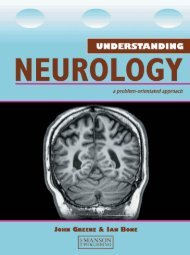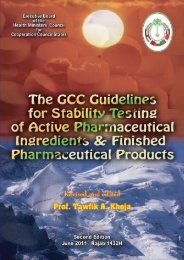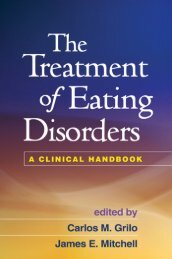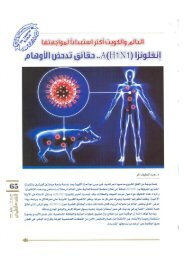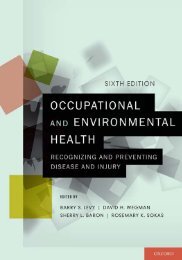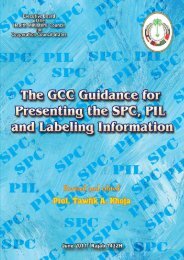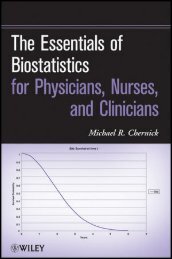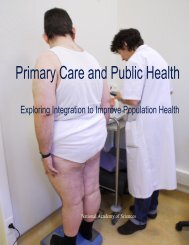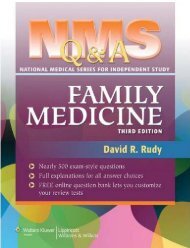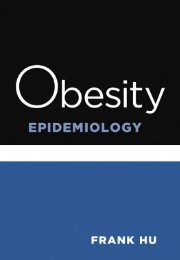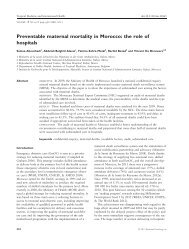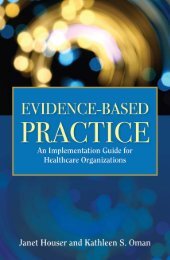Evidence-Based Medicine
Evidence-Based Medicine
Evidence-Based Medicine
You also want an ePaper? Increase the reach of your titles
YUMPU automatically turns print PDFs into web optimized ePapers that Google loves.
O<br />
Observational studies<br />
Observational studies may be included in the Harms section or in the Comment.<br />
Observational studies are the most appropriate form of evidence for the<br />
Prognosis, Aetiology, and Incidence/Prevalence sections. The minimum data<br />
set and methods requirements for observational studies have not been finalised.<br />
However, we always indicate what kind of observational study, whether case<br />
series, case control, prospective or retrospective cohort study.<br />
Odds<br />
The odds of an event happening is defined as the probability that an event will<br />
occur, expressed as a proportion of the probability that the event will not occur.<br />
Odds are a ratio of events to non-events, e.g, if the event rate for a disease is<br />
0.2 (20 percent), its non-event rte is 0.8 (80%) then its odds are 0.2/0.8=0.25 (see<br />
Odds Ratio).<br />
Odds ratio (OR)<br />
One measure of treatment effectiveness. It is the odds of an event happening<br />
in the experimental group expressed as a proportion of the odds of an event<br />
happening in the control group. Odds Ratio is the odds of an experimental<br />
patient suffering an event relative to the odds of a control patient. The closer<br />
the OR is to one, the smaller the difference in effect between the experimental<br />
intervention and the control intervention. If the OR is greater (or less) than one,<br />
then the effects of the treatment are more (or less) than those of the control<br />
treatment. Note that the effects being measured may be adverse (e.g. death or<br />
disability) or desirable (e.g. survival).<br />
When events are rare the OR is analagous to the relative risk (RR), but as event<br />
rates increase the OR and RR diverge.<br />
The ratio of events to non-events in the intervention group over the ratio of<br />
events to non-events in the control group.<br />
Odds reduction<br />
The complement of odds ratio (1-OR), similar to the relative risk reduction (RRR)<br />
when events are rare.<br />
-41-



